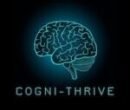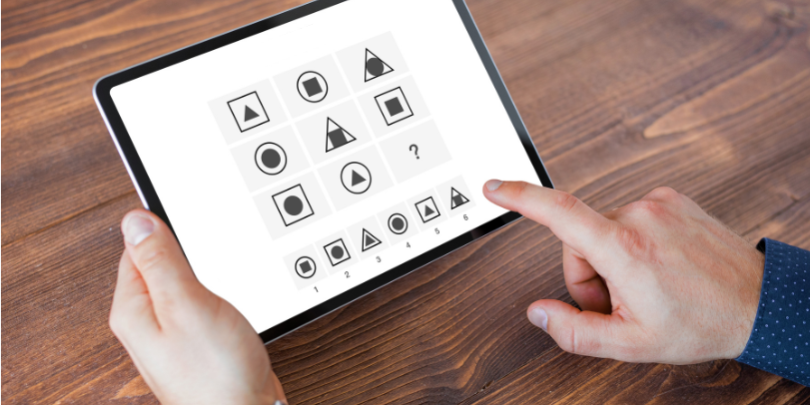Maintaining optimal cognitive health is an essential component of planning for the future. As we age, subtle changes in our memory, reasoning, and verbal abilities can occur. However, differentiating normal aging from early signs of cognitive decline is crucial, primarily as early intervention can provide opportunities to slow progression and improve quality of life. At Cogni-Thrive, we understand that your brain health matters just as much as physical health. In this blog, we explore key methods for evaluating cognitive decline and determining the present level of dementia that a person may be experiencing.
The Importance of Evaluating Early
Evaluating cognitive decline begins with establishing a baseline. Early detection is vital because even slight changes in cognitive performance can signal an increased risk for conditions such as mild cognitive impairment (MCI) or dementia. When assessed at an early stage, many causes of cognitive decline can be managed, and some impairments may be reversible through targeted interventions, lifestyle adjustments, and cognitive stimulation programs. Early and periodic cognitive evaluations empower individuals to take charge of their brain health and to adopt strategies that support long-term cognitive wellness.
Comprehensive Cognitive Assessments: A Multi-Step Approach
At the heart of cognitive evaluation is the need to perform a comprehensive assessment that covers core cognitive areas. Tools like the CBS Health Assessment—backed by over 25 years of scientific research—offer fun, short testing tasks that assess memory, attention, reasoning, and verbal abilities. These assessments are designed to be brief (taking only a few minutes) yet robust enough to detect subtle differences in performance compared to age and gender-related norms.
Similarly, our Mindset Excel program (featured on the Care and Thrive Foundation’s website) emphasizes that regular cognitive monitoring should become a part of your routine health regimen. The program encourages you to:
- Know Your Brain: Understand your strengths and weaknesses across four key cognitive areas—memory, reasoning, verbal ability, and concentration.
- Track and Act: Repeat testing periodically to monitor changes over time. This ongoing assessment not only highlights your cognitive trajectory but also pinpoints any emerging areas of concern.
- Act on Changes: With expert guidance from certified dementia practitioners, create a personalized brain health plan. Whether it involves medical consultation, lifestyle modifications, or cognitive stimulation exercises, prompt action is the key to effective management.

Evaluating Cognitive Decline to Determine Dementia Stage
Determining the level of dementia involves quantifying the degree and nature of cognitive deficits. Clinicians use various cognitive tests—from the well-known Mini-Mental State Examination (MMSE) and Montreal Cognitive Assessment (MoCA) to comprehensive neuropsychological batteries—to assess cognitive domains. These tests help in:
- Identifying Baseline Functionality: Establishing a cognitive baseline enables physicians to compare current performance against previous tests, thereby detecting incremental decline.
- Differentiating Types of Cognitive Impairment: For instance, while MCI is generally characterized by noticeable but not debilitating memory lapses, dementia typically signifies more severe impairment that affects daily functioning. A detailed evaluation can inform whether observed deficits are within the normal range of aging or indicate a clinical condition.
- Guiding Treatment Planning: Once the stage of dementia is determined—ranging from early or mild to advanced—the results of cognitive evaluations help healthcare professionals craft a targeted treatment strategy. This may involve cognitive rehabilitation, medication, lifestyle interventions, or a combination thereof.
The Empowering Role of Brain Health Management
What sets Cogni-Thrive apart is our belief that dementia is not an inevitable consequence of aging. Although there is currently no cure for progressive neurodegenerative conditions, early detection and tailored interventions can slow cognitive decline and improve overall life quality. By taking a proactive approach to brain health, you join an empowered community that monitors cognitive status, recognizes subtle changes early, and works in partnership with experts to design a plan that suits your unique needs.

Next Steps Toward a Brighter Future
Regular cognitive evaluations are more than a diagnostic measure—they are an opportunity to invest in your future. Whether you’re concerned about minor memory lapses or have a family history of dementia, the time to act is now. Schedule a cognitive screening with your healthcare provider or take advantage of free demo tools, such as those featured on Mindset Excel. By understanding your cognitive baseline and monitoring changes over time, you open a pathway to early intervention that can help maintain your mental agility and independence for years to come.
At Cogni-Thrive, our commitment is to help you thrive at every stage of life. With expert guidance, state-of-the-art assessment tools, and personalized treatment planning, managing cognitive decline becomes a journey of empowerment. Your brain is your most valuable asset—protect it, monitor it, and nurture it because you deserve to thrive.




